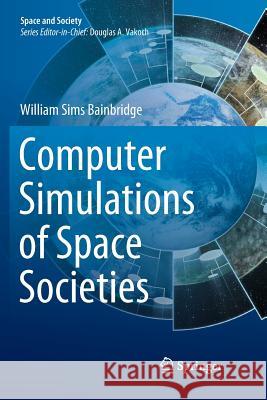Computer Simulations of Space Societies » książka
topmenu
Computer Simulations of Space Societies
ISBN-13: 9783030080426 / Angielski / Miękka / 2019 / 254 str.
Kategorie:
Kategorie BISAC:
Wydawca:
Springer
Seria wydawnicza:
Język:
Angielski
ISBN-13:
9783030080426
Rok wydania:
2019
Dostępne języki:
Numer serii:
000183683
Ilość stron:
254
Waga:
0.37 kg
Wymiary:
23.39 x 15.6 x 1.4
Oprawa:
Miękka
Dodatkowe informacje:
Wydanie ilustrowane











